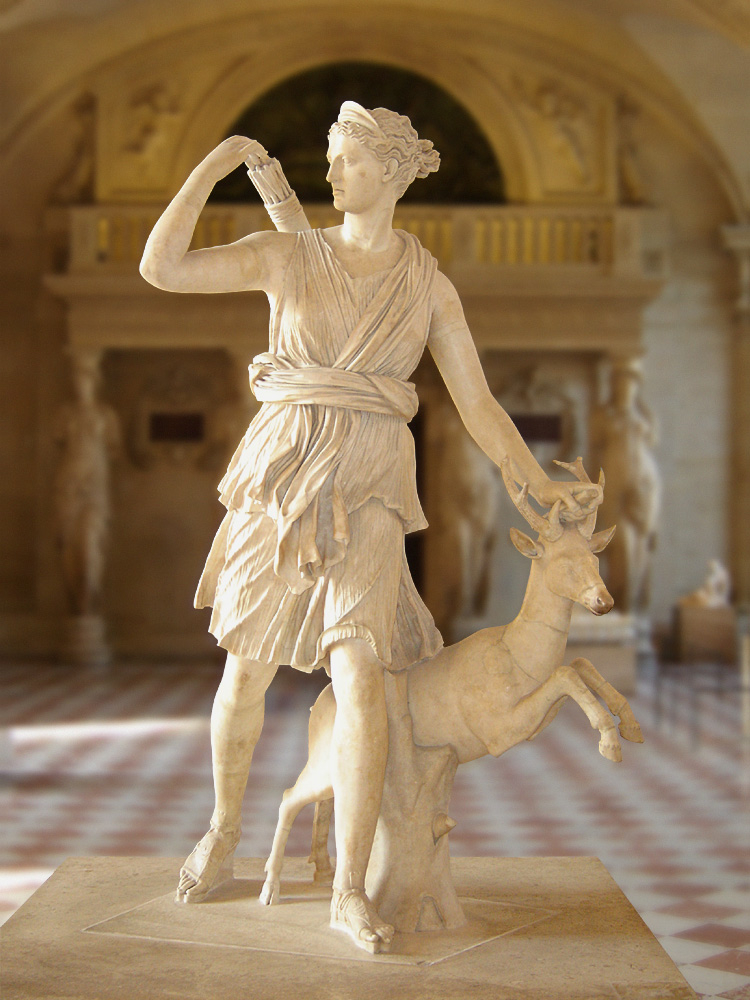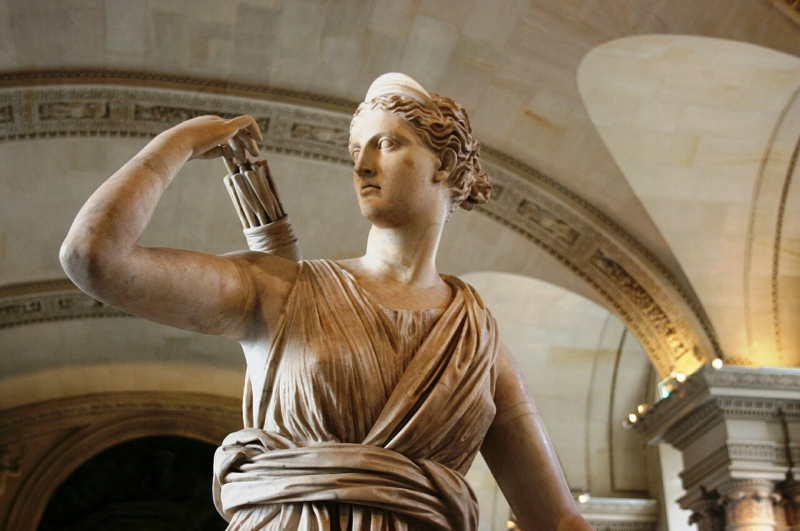Diana

Diana is a Roman and Hellenistic goddess who is known as the patroness of the countryside, hunters, crossroads, and the Moon. She is associated with the Greek goddess Artemis, and she inherited much of Artemis' mythology early in Roman history, including a birth on the Greek island of Delos to parents Jupiter and Latona, and a twin brother, Apollo, while having an independent origin in Italy.
Diana is revered as a virgin goddess and the patroness of childbirth. Diana was once part of a triad with two other Roman deities: Egeria the water nymph, her servant and midwife, and Virbius, the woodland deity. Diana is adored in Roman neopaganism, Stregheria, and Wicca, among other current neopagan religions. Diana was considered a tripartite divinity throughout the ancient, medieval, and modern times, united with a goddess of the moon (Luna/Selene) and the underworld (usually Hecate).
Diana was a common goddess throughout all Latin tribes. As a result, many sanctuaries were erected for Mary in Latin-inhabited areas. Her primary abode was a forest grove overlooking Lake Nemi, also known as "Diana's Mirror," where she was worshiped as Diana Nemorensis, or "Diana of the Wood." Diana's cult in Rome may be almost as old as the city itself. Varro includes her among the deities for whom King Titus Tatius promised to erect a shrine. According to legend, she possessed a temple on the Aventine Hill in Rome, which was dedicated by King Servius Tullius.
Other known Diana sanctuaries and temples include Colle di Corne near Tusculum, where she is known by the archaic Latin name deva Cornisca and where a collegium of worshippers existed; Évora, Portugal; Mount Algidus, also near Tusculum; Lavinium; and Tibur (Tivoli), where she is known as Diana Opifera Nemorensis. Diana was also revered at a sacred wood recorded by Livy - ad compitum Anagninum (near Anagni) - as well as on Mount Tifata in Campania.













